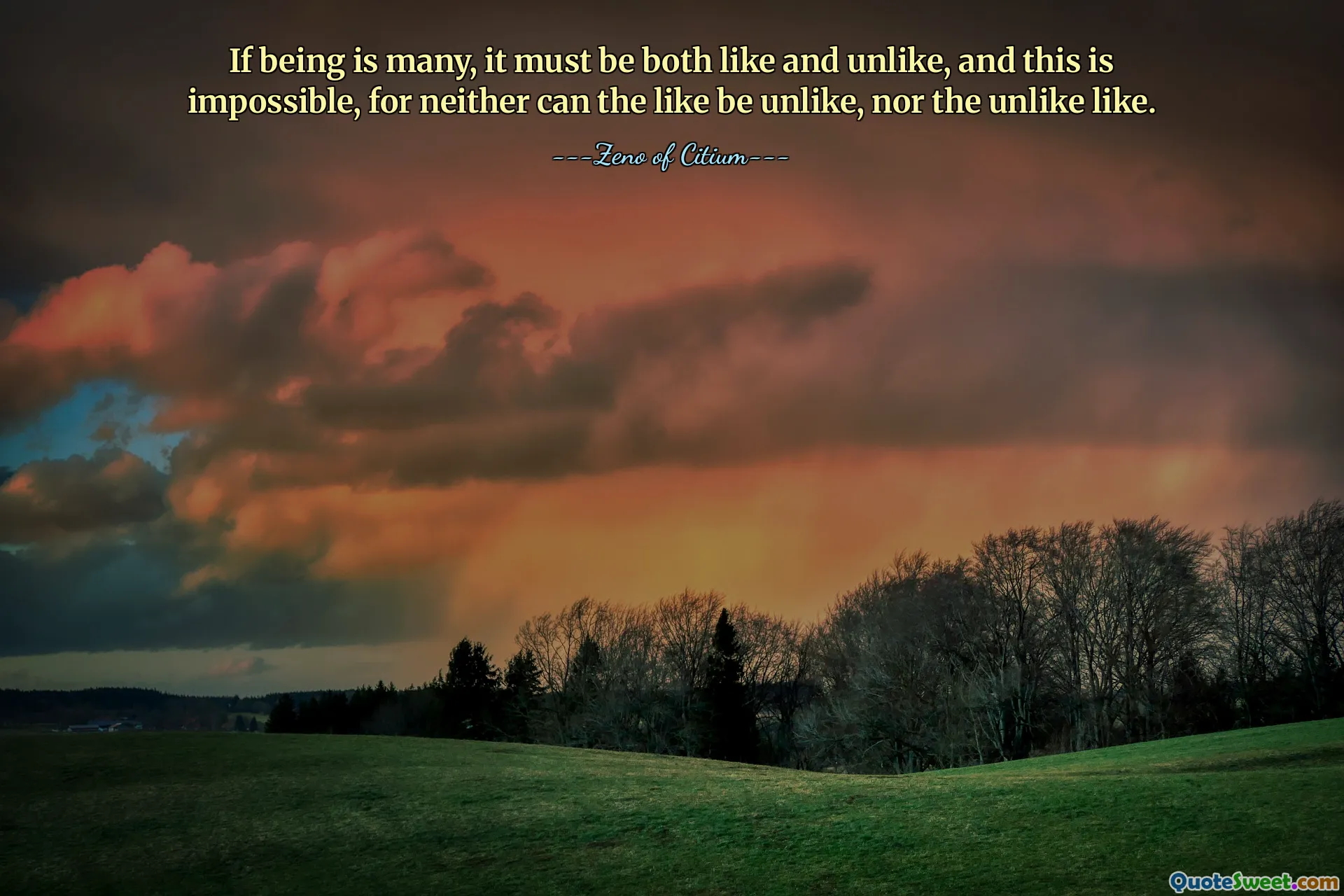
If being is many, it must be both like and unlike, and this is impossible, for neither can the like be unlike, nor the unlike like.
This quote explores a profound metaphysical paradox concerning the nature of existence and identity. It challenges the notion of multiplicity or plurality in being, arguing that if being were many, it would have to be simultaneously similar and dissimilar. This dual requirement creates an inherent contradiction because something cannot be both alike and unlike at the same time. The paradox highlights the tension between unity and diversity, raising questions about how things can be distinct yet share characteristics. It underscores the challenges in conceptualizing how multiplicity coexists with identity and sameness. Philosophically, this thought can be linked to discussions on the nature of reality, substance, and essence, pushing us to reconsider how we understand the categories and boundaries between objects and concepts. The quote prompts us to reflect on the limits of binary thinking and the complexity of categorization processes in human reasoning. Moreover, it implicitly questions foundational concepts in metaphysics, such as the principle of non-contradiction and the nature of being itself. By confronting these dilemmas, the quote invites deeper inquiry into how existence is structured and how sameness and difference coexist or conflict. Overall, it resonates with enduring philosophical explorations that challenge us to refine our understanding of reality beyond simplistic dichotomies.











